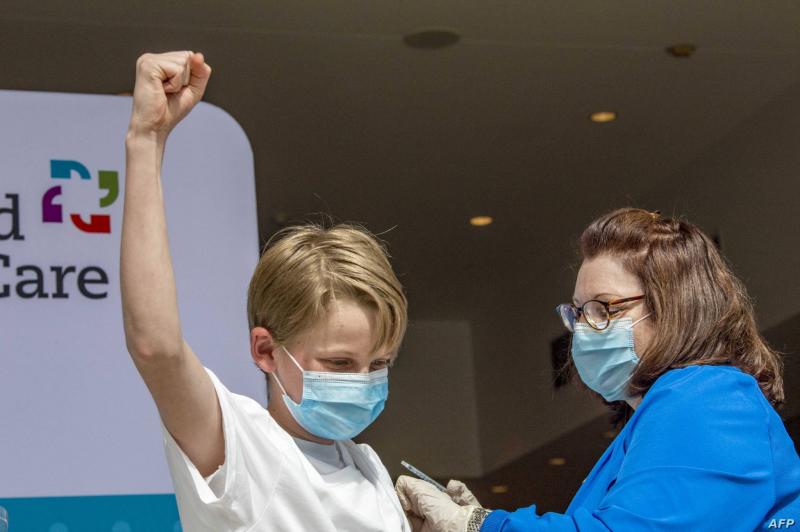The U.S. Food and Drug Administration announced that the Pfizer-BioNTech COVID-19 vaccine has met its immune response criteria for children aged 5 to 11 years. The federal agency confirmed in a report issued on Friday that the overall benefits of the vaccine for this age group outweigh its risks, including the rare myocarditis associated with the vaccine. This announcement coincided with the release of data by Pfizer showing that its vaccine achieved a 90.7% effectiveness in preventing COVID-19 symptoms during clinical trials conducted on children aged 5 to 11 years.
The report's release also comes ahead of an anticipated meeting scheduled for Tuesday of the advisory committee of vaccine experts to provide guidance to the FDA. In early October, American company Pfizer and its German counterpart BioNTech requested emergency use authorization from the FDA for the vaccine for children aged 5 to 11 years. If the FDA approves emergency use of the vaccine for this age group, nearly 28 million American children would be eligible for vaccination in the first week of November, according to The New York Times.
Although the risk of severe COVID-19 illness in children is much lower than in older adults, the United States has recorded 542 deaths related to COVID-19 among children under the age of 17, according to data from the Centers for Disease Control and Prevention. In September, Pfizer and BioNTech stated that their vaccine had achieved strong immune responses in a study involving nearly 2,270 children aged 5 to 11 years. Each child received two doses spaced three weeks apart, with each dose containing a third of the amount used for teenagers and adults. Researchers estimated that the vaccine, at the reduced dose, has an effectiveness exceeding 90% based on 16 COVID-19 cases among the children who received the placebo compared to three cases among those who were vaccinated.
No cases of severe symptoms were reported among the children, but those who were vaccinated experienced substantially milder symptoms than their unvaccinated peers. More than 25,000 pediatricians and primary care providers have already signed on to support vaccinations for children, as the Biden administration purchased enough doses for children that come in orange-cap containers to distinguish them from adult doses. The Pfizer-BioNTech vaccine received emergency use authorization in December of last year for adults over 16 years, and in May it received approval for use in adolescents aged 12 and older.




